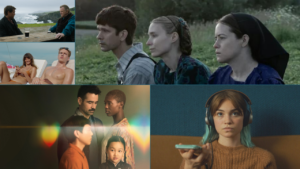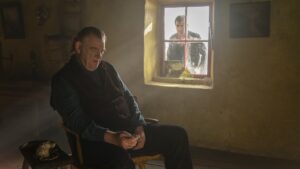Robert Eggers is perhaps our most historical filmmaker. After creating The Witch and The Lighthouse, it’s clear he enjoys finding unique corners of history and lavishly recreating them. That trend continues in his latest film The Northman, a viking epic that has Eggers wielding a bigger cast (and a much bigger budget) than he has before, while maintaining a meticulous sense of historicity in every aspect of the production.
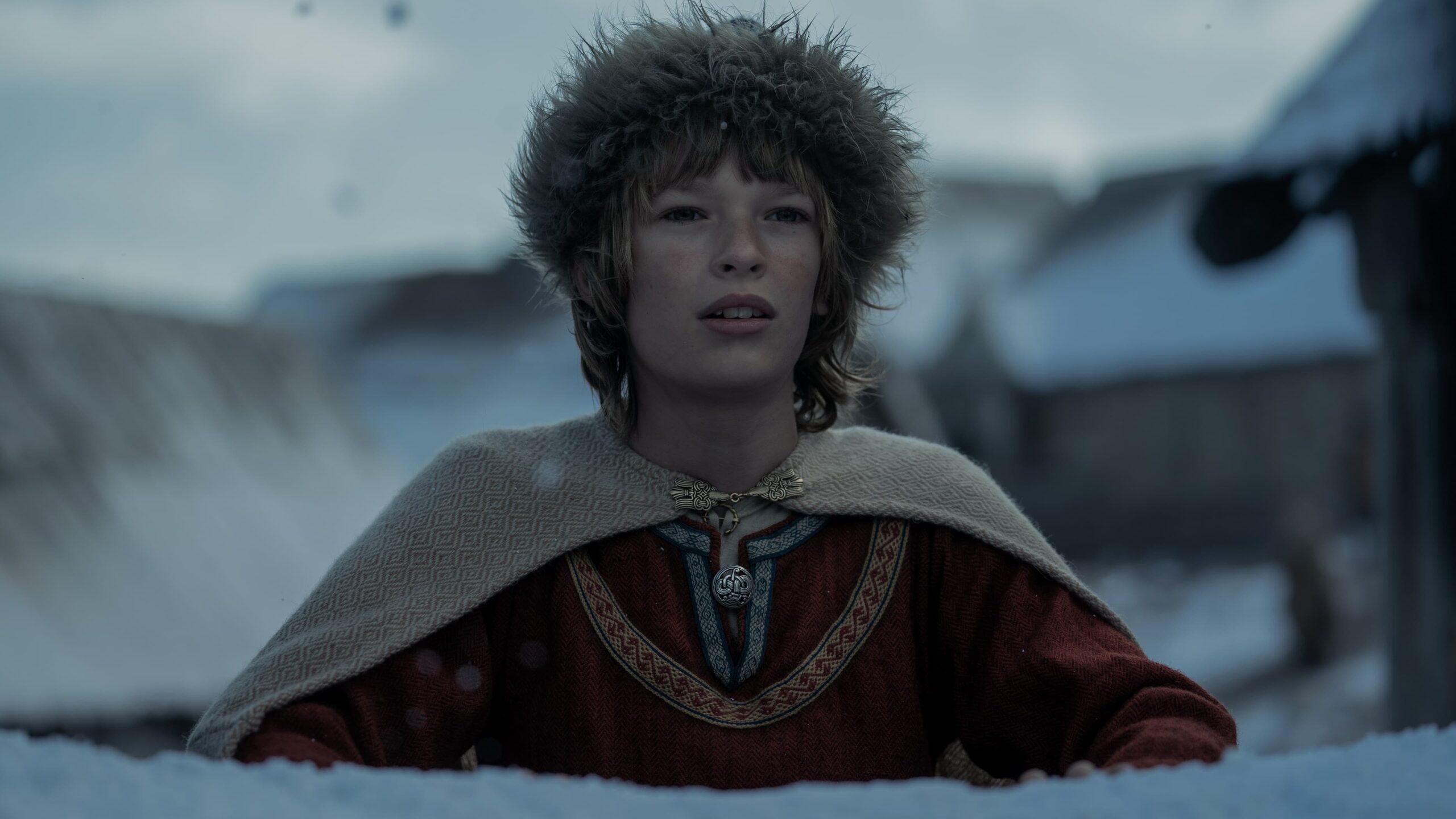
Alexander Skarsgård stars as Amleth, a prince and son to Icelandic King Aurvandil War-Raven (Ethan Hawke) and Queen Gudrún (Nicole Kidman). He’s on a quest for vengeance after witnessing the murder of his father at the hands of his Uncle Fjölnir (Claes Bang). If that sounds vaguely familiar, it’s because William Shakespeare based Hamlet on the same Scandinavian legend that Robert Eggers pulls from for this film. The similarities to Hamlet, though, don’t extend much further than the basic setup.
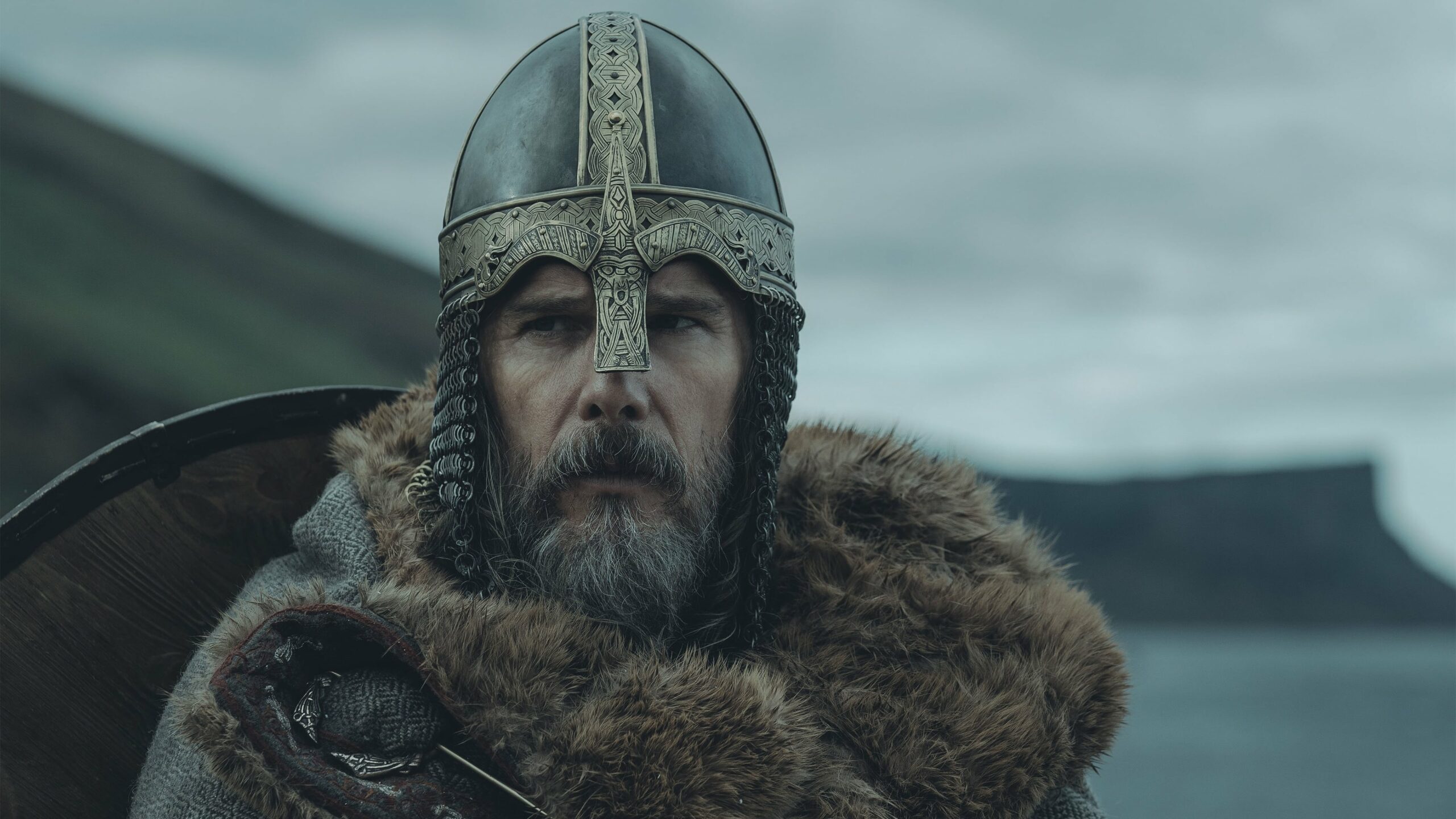
For one thing, Amleth is a killing machine, raised by a band of vikings after fleeing his home in the aftermath of Fjölnir’s coup. When we first catch up with adult Amleth, we watch him and his brethren brutally pillage a small town, killing almost everyone in sight before rounding many of the survivors up and burning them alive. Shortly thereafter, Amleth receives a vision from a Seeress (Björk) who reminds him of his plot for vengeance and sets him on his journey back home. Amleth disguises himself as a slave, and stows away on a slave ship where he meets fellow passenger Olga (Anya Taylor-Joy) who aids him on his violent quest.
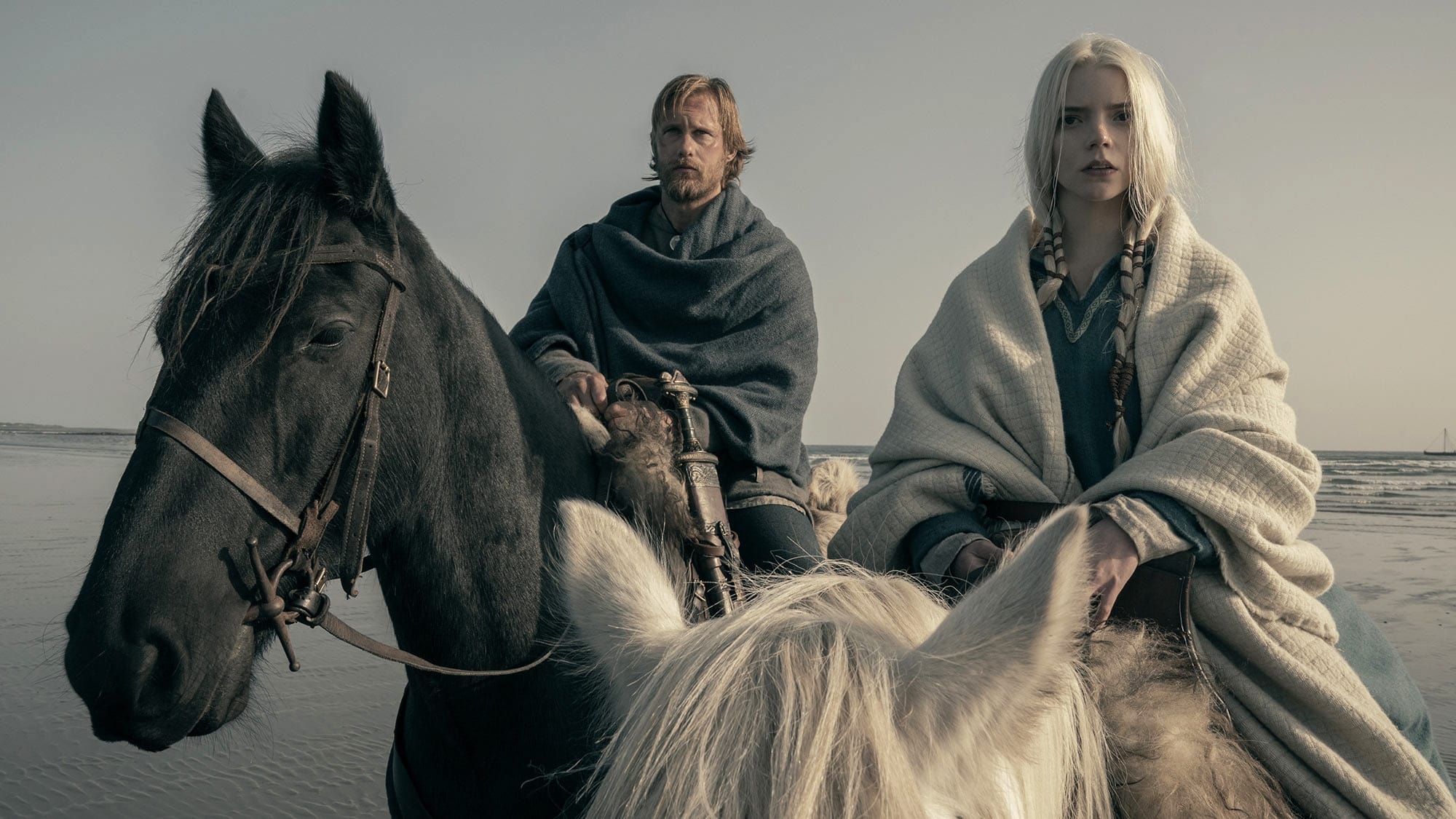
Perhaps most striking about the historical setting of The Northman is that it goes beyond re-creating ancient buildings and dialogue— rather, Eggers is most interested in letting his audiences inhabit a historical mindset. While many period dramas are anachronistic in this way— you often see people supposedly from a different time behaving in very modern ways— Eggers seems determined to capture the headspace of ancient people as accurately as he can, and push his viewers into that headspace as well.
From his first feature, Robert Eggers has sought to bring us realistic depictions of people from times drastically different from our own, portraying people who not only live, but think, differently than we do today because of their historical context. In The Witch, we see Thomasin’s heartfelt prayers, her brother Caleb’s anguish over the threat of hell, and her father William trying desperately to hold to a serious faith while his family falls apart. Puritanical faith certainly has echoes in today’s world, but the devoutness on display in 1630s New England is startling for modern viewers. And then in The Lighthouse, set in the 1890s, Thomas and Ephriam’s toxic behavior is the result of their attempts at attaining an ideal of masculinity, handed to them in a time when unchecked patriarchy had been the norm for centuries. Add in a dash of loneliness to their hyper-masculinity, and you get outright madness.
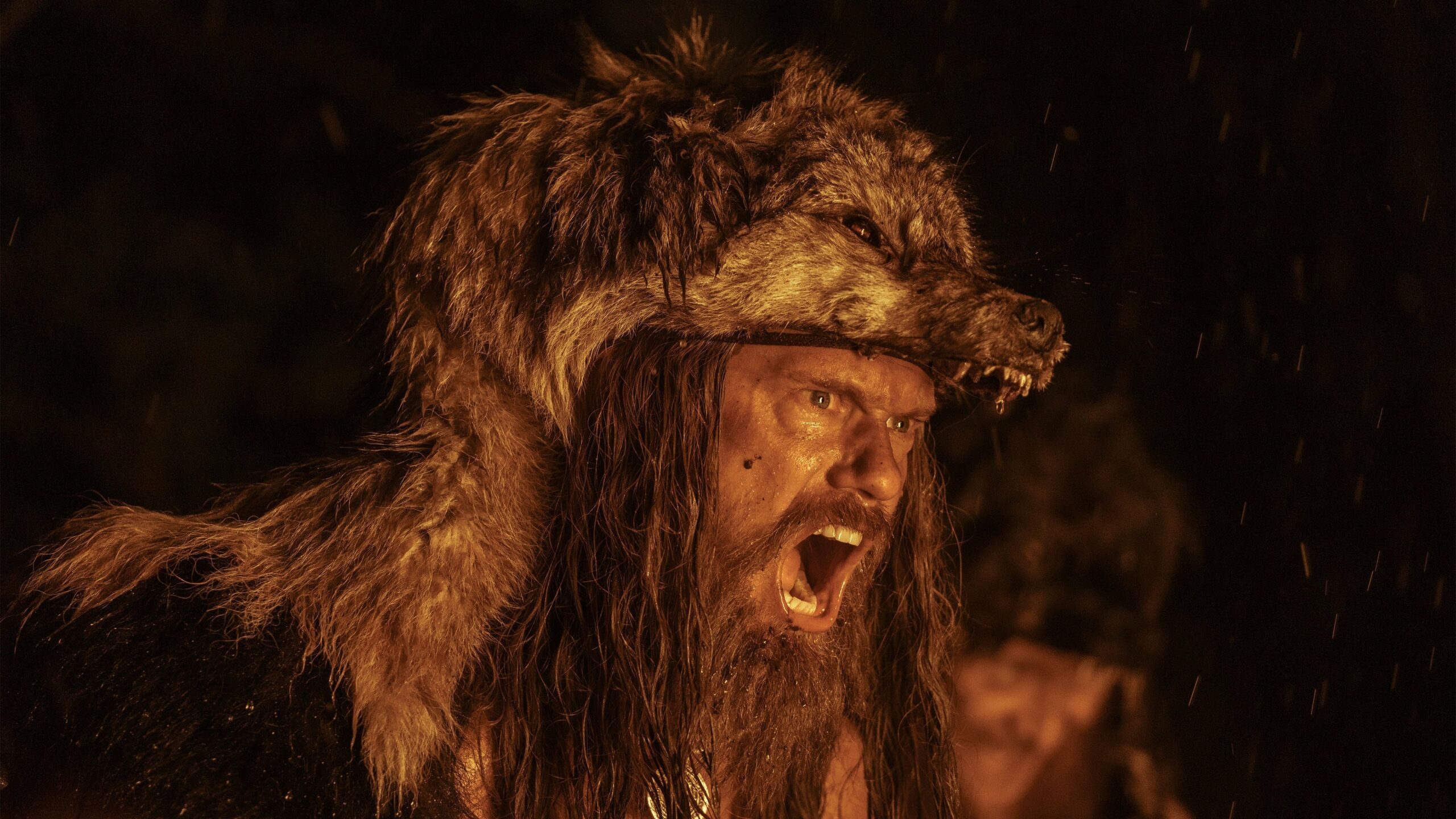
The Northman contains thematic hints of both of Eggers’ previous features, but it dials back the timeline even further, to AD 895. The world we inhabit in this film feels almost completely alien to modern audiences. Our earliest sense of this chronological distance comes in the film’s first great scene, in which the child Amleth and his father enter into a religious ritual with the help of the jester Heimir (Willem Dafoe), in a temple to the god Odin. After taking hallucinogens, the father and son take on the persona of dogs, eventually sparking Amleth to have a striking vision of his family tree. Later, grown-up Amleth and his viking tribesmen similarly behave like wolves in a pre-battle ceremony around a bonfire. Out of context, these descriptions may sound silly, but the commitment by the actors makes them more frightening than funny. Highlighting just how far-removed these cultures are from our modern context, we also get a reference later in the film to the barbaric Christians in other countries— “their God is a corpse nailed to a tree.”
Aside from the largely unfamiliar religious context, the very basic human and societal values are not what modern viewers expect. Robert Eggers is never one to slow down and explain things, choosing instead to plunge us into the deep end, throwing us into a kill-or-be-killed society where physical might is the currency of the day. And our hero, Amleth, has spent years investing— Alexander Skarsgård looks almost inhumanly muscular in this role. So when we see Amleth fight droves of men despite his seemingly sporadic and protein-deficient diet, it’s believable. We can sense the sort of life he lived in the intervening years between childhood and adulthood, and Skarsgård successfully looks and acts the part of a skilled berserker. We instantly believe that he’s formidable without having to be told, and we understand that weak people are afraid of strong people in the year 895. Effectively portraying societal values like this is vital to Eggers’ historical approach to filmmaking, and in The Northman he successfully scales up his style of storytelling to show us something much grander than he has before.
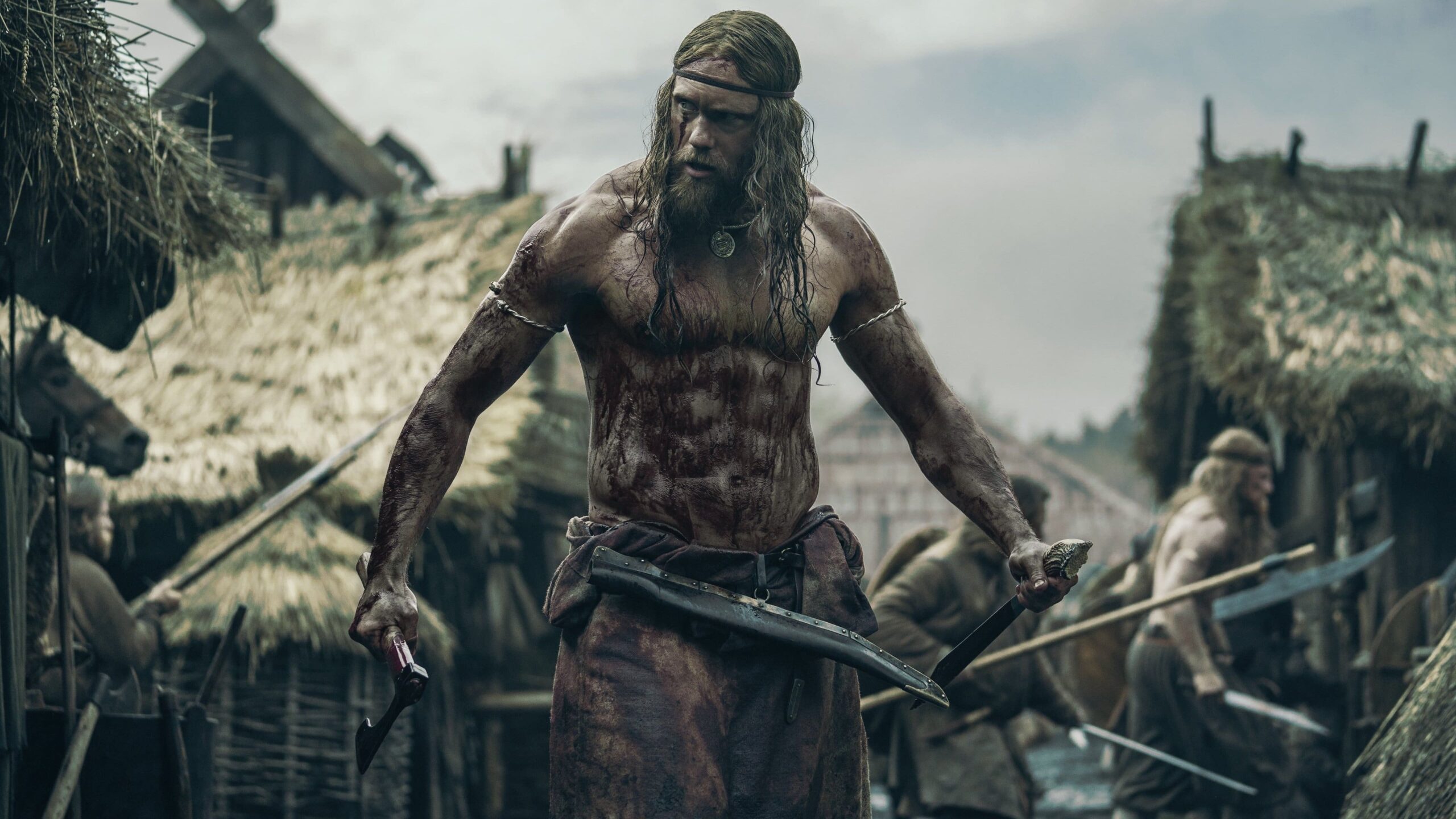
The Northman is also exceptionally brutal, and not only in its battle scenes. Fjölnir has his slaves partake in one scene in an ancient and bloody sport, reminiscent of lacrosse or rugby, with the violence ramped up to 11. Later on, there are also human and animal sacrifices, with blood collected and used ritualistically. There are dismemberments, disembowelments, stabbings, and beheadings, in addition to the emotional violence between characters. It’s a lot to take in, and not for the faint of heart.
As effective as the historical aspects of the screenplay are, The Northman is not Eggers’ strongest script. Some dialogue feels a bit unnatural, a problem not present in other Eggers films, and the eventual romance between Amleth and Olga feels a bit awkward and forced for the sake of narrative. That’s not to take away from Anya Taylor-Joy, who steals every scene she’s in. She and Willem Dafoe give my favorite performances in this film.
Nicole Kidman’s casting as Queen Gudrún is the most interesting. She initially seems underutilized, but by the end her role expands considerably, and she has perhaps the most memorable scene in a film full of memorable scenes. Ethan Hawke’s performance is a bit of a departure for him; he’s much more gruff and gravely than usual, and he’s perfect in the religious ritual scene mentioned above.
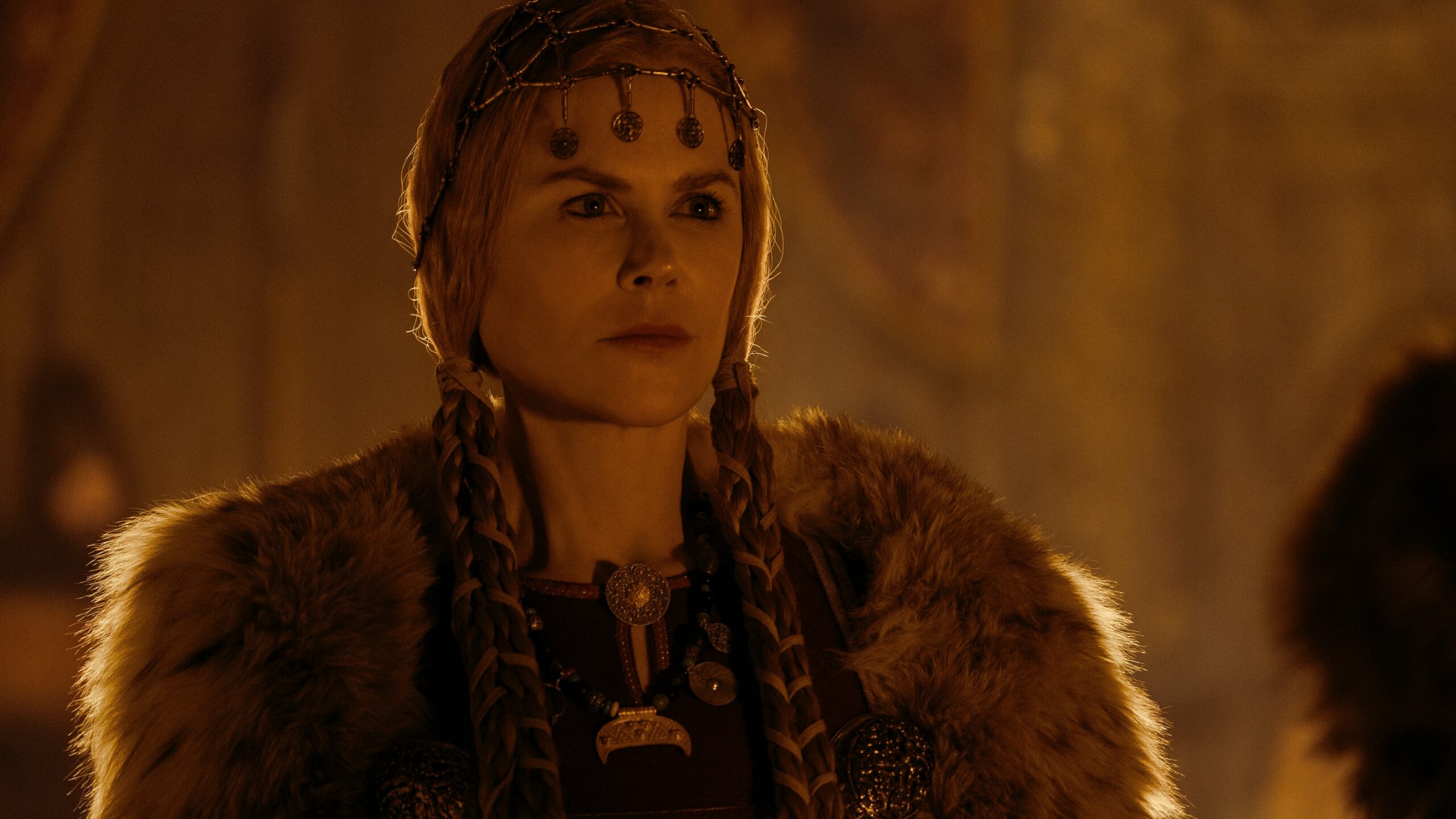
One of cinema’s most powerful qualities is the way it can connect viewers to other cultures and times. When a person in the year 2022 watches Casablanca and feels in it their common humanity reflected back to them, it can be startling and even spiritual. Zooming out of your own narrow experience is healthy and necessary, and the best films provide such an outlet. Classic films and well-executed period films like The Northman, show us a different time, and can help us bridge historical gaps. How often do you get to spend a few hours fully immersed in ancient Iceland? Few filmmakers working today approach period filmmaking with the high degree of care and respect that Robert Eggers clearly holds for his subject matter, and we moviegoers get to reap the benefits— if we can stomach it.
The Northman is now playing in theaters, and I gave it 4/5 stars


